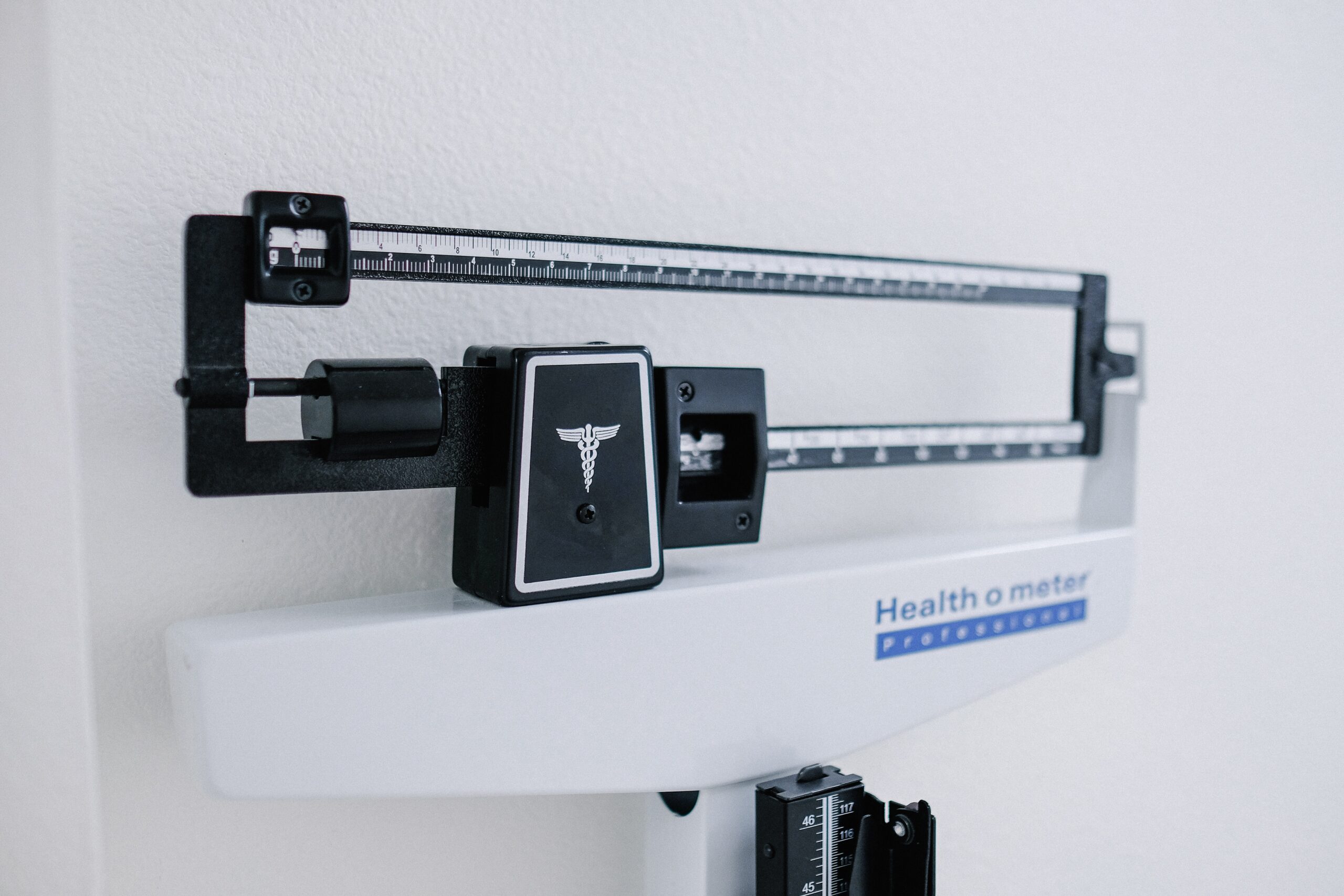If you’ve ever struggled with getting a good night’s sleep, you’re not alone. One possible culprit that scientists have been exploring is the relationship between obesity and sleep apnea. Can obesity really cause sleep apnea? Recent scientific studies indicate that there may indeed be a connection. In one study published in the Journal of Clinical Sleep Medicine, researchers found that obesity was a significant risk factor for developing sleep apnea. Another study published in the American Journal of Respiratory and Critical Care Medicine also concluded that obesity was strongly associated with the development of sleep apnea. These findings highlight the importance of understanding the link between obesity and sleep apnea, shedding light on potential ways to address this pervasive sleep disorder.

Discover the Ultimate Weight Loss Secrets Here!
Overview
Sleep apnea is a sleep disorder characterized by pauses in breathing or shallow breaths during sleep. It can be caused by various factors, including obesity. Obesity is a condition where excess body fat accumulates to an extent that it may have a negative impact on health. Both sleep apnea and obesity are prevalent issues in today’s society, with millions of people affected worldwide. The connection between obesity and sleep apnea is significant, as individuals who are obese are more likely to develop sleep apnea compared to those with a healthy weight.
Understanding Sleep Apnea
Sleep apnea is a condition that occurs when the upper airway becomes partially or completely blocked during sleep, leading to breathing pauses or shallow breaths. There are three main types of sleep apnea: obstructive sleep apnea (OSA), central sleep apnea, and complex sleep apnea syndrome. OSA is the most common type, and it typically results from a relaxation of the throat muscles that support the airway.
The causes of sleep apnea can vary. In the case of OSA, obesity plays a significant role, as excess weight can put pressure on the airway, leading to its collapse during sleep. Other factors that contribute to sleep apnea include the anatomy of the airway, family history, aging, and medical conditions such as nasal congestion, high blood pressure, and diabetes.
Symptoms of sleep apnea may include loud snoring, gasping or choking during sleep, daytime sleepiness, morning headaches, and difficulty concentrating. If you suspect you may have sleep apnea, it is essential to seek diagnosis and appropriate treatment from a healthcare professional.
Click Here for Proven Fat-Burning Strategies!
Understanding Obesity
Obesity is a complex condition characterized by the accumulation of excess body fat, which can have detrimental effects on health. It is typically classified based on body mass index (BMI), which is calculated using an individual’s weight and height. A BMI of 30 or higher is considered obese.
The causes of obesity are multifactorial and can include a combination of genetic, environmental, psychological, and behavioral factors. Genetic factors can predispose some individuals to obesity, while environmental factors such as a sedentary lifestyle, high-calorie diets, and easy access to unhealthy food can contribute to weight gain.
Obesity is associated with numerous health risks, including cardiovascular disease, type 2 diabetes, certain cancers, sleep apnea, and musculoskeletal disorders. It can also impact overall quality of life and mental health.
Prevention and management of obesity involve adopting a healthy lifestyle that includes regular physical activity, balanced nutrition, and behavior modification. It is essential to consult with healthcare professionals, such as dietitians and exercise specialists, to develop a personalized plan that suits individual needs and goals.
The Connection Between Obesity and Sleep Apnea
Scientific studies have confirmed the relationship between obesity and sleep apnea. One study published in the American Journal of Respiratory and Critical Care Medicine aimed to investigate the association between obesity and the prevalence of sleep apnea. The results showed that individuals with obesity had a significantly higher risk of developing sleep apnea compared to those with a healthy weight. The study concluded that obesity is a significant risk factor for sleep apnea.
Another study published in the Journal of Clinical Sleep Medicine analyzed the impact of weight loss on sleep apnea severity in obese individuals. The findings demonstrated that a reduction in body weight resulted in a significant improvement in sleep apnea symptoms and severity. The study suggested that weight loss interventions should be considered as part of sleep apnea management.
Furthermore, a study conducted at the University of Pennsylvania School of Medicine explored the relationship between obesity and sleep apnea through a genetic analysis. The researchers identified specific genes associated with both obesity and sleep apnea, further supporting the connection between the two conditions. The study highlighted the importance of understanding the underlying genetic mechanisms involved in sleep apnea related to obesity.
These studies collectively highlight the clear link between obesity and sleep apnea, emphasizing the need for addressing obesity in the management of sleep apnea.

Mechanisms Involved
Obesity acts as a risk factor for sleep apnea through various mechanisms. One key mechanism is the impact of excess body weight on the airways. The accumulation of fat in the neck and upper body can compress the airway, leading to narrowing and obstruction during sleep. This obstruction causes breathing pauses, resulting in disrupted sleep patterns and the characteristic symptoms of sleep apnea.
Inflammatory processes also play a role in obesity-related sleep apnea. Obesity is associated with chronic inflammation throughout the body, including in the respiratory system. This inflammation can contribute to the structural and functional changes in the airway, further contributing to sleep apnea development.
Hormonal factors are another important component of the obesity-sleep apnea relationship. Obesity can lead to hormonal imbalances, such as elevated levels of leptin (a hormone that regulates appetite) and decreased levels of adiponectin (a hormone involved in glucose and lipid metabolism). These hormonal changes can disrupt the normal functions of the respiratory system and contribute to sleep apnea onset.
Obesity-Related Factors Influencing Sleep Apnea
Central obesity, which refers to the excess accumulation of fat in the abdominal region, is particularly problematic in the context of sleep apnea. The fat cells in this area can release inflammatory substances and hormones that negatively affect the airway, leading to obstruction during sleep. Furthermore, central obesity is closely associated with other metabolic conditions, such as insulin resistance and high blood pressure, which can further exacerbate sleep apnea.
The role of adipose tissue, or fat cells, in sleep apnea is also noteworthy. Adipose tissue releases various substances called adipokines, which regulate inflammation and metabolic processes. Imbalances in adipokine levels, such as increased production of pro-inflammatory adipokines, can contribute to airway inflammation, narrowing, and ultimately sleep apnea.
Research has demonstrated a significant correlation between abdominal obesity and sleep apnea. Abdominal fat can compress the diaphragm and affect respiratory mechanics, leading to the development or worsening of sleep apnea. Addressing abdominal obesity through weight loss interventions can be an effective strategy in managing sleep apnea in obese individuals.

Managing Sleep Apnea in Obese Individuals
Treatment options for sleep apnea aim to alleviate symptoms, improve sleep quality, and reduce associated health risks. Continuous positive airway pressure (CPAP) therapy is one of the most common and effective treatments for sleep apnea. It involves wearing a mask that delivers a continuous airflow, keeping the airway open during sleep.
For obese individuals with sleep apnea, lifestyle modifications for weight loss play a crucial role in managing the condition. Weight loss not only reduces the severity of sleep apnea but also improves overall health and quality of life. A combination of regular physical activity and dietary changes is recommended to achieve sustainable weight loss.
Physical activity plays a fundamental role in managing sleep apnea and promoting weight loss. Engaging in aerobic exercises, such as brisk walking or swimming, can help burn calories and improve overall cardiovascular fitness. Strength training exercises can also be beneficial for building lean muscle mass, which contributes to a higher metabolic rate.
Dietary changes are essential in managing sleep apnea and obesity. A balanced diet that includes whole grains, fruits, vegetables, lean proteins, and healthy fats can support weight loss efforts and improve sleep apnea symptoms. Limiting the intake of processed foods, sugary beverages, and high-fat foods is recommended.
Preventing Sleep Apnea Through Weight Management
Maintaining a healthy weight is crucial in preventing sleep apnea. By avoiding obesity, individuals can reduce their risk of developing the condition. Regular exercise plays a significant role in weight management and overall health. Engaging in at least 150 minutes of moderate-intensity aerobic activity or 75 minutes of vigorous-intensity aerobic activity each week can help maintain a healthy weight and reduce the likelihood of sleep apnea.
A balanced diet is equally important. Consuming a variety of nutrient-dense foods, controlling portion sizes, and avoiding excessive calorie intake can help prevent obesity and, subsequently, sleep apnea. Taking steps to decrease overall sugar and fat consumption, while increasing fruit and vegetable intake, can have a positive impact on weight management and sleep apnea prevention.
Educational campaigns and awareness initiatives play a critical role in preventing sleep apnea through weight management. Raising awareness about the risks and consequences of obesity and sleep apnea, as well as providing resources for healthy lifestyle choices, can empower individuals to take control of their health.

Conclusion
The relationship between obesity and sleep apnea is significant and well-established. Obesity increases the risk of developing sleep apnea due to its impact on airway mechanics, inflammatory processes, and hormonal imbalances. Scientific studies have consistently demonstrated this connection, highlighting the need for addressing obesity in sleep apnea management.
Prevention and management of obesity through lifestyle modifications, including regular physical activity and balanced nutrition, are essential in reducing the severity of sleep apnea and improving overall health. Weight loss interventions have shown promising results in improving sleep apnea symptoms and severity.
Recognizing the link between obesity and sleep apnea is crucial for healthcare professionals and individuals alike. Future research should continue to explore the underlying mechanisms and potential interventions to further improve sleep apnea management in obese individuals.
References:
- “Obesity and Obstructive Sleep Apnea – Clinical Significance of Weight Loss” (Published in Sleep Medicine Reviews, 2012): This study examines the impact of weight loss on obstructive sleep apnea (OSA) in obese individuals. It highlights the effectiveness of weight loss, either through lifestyle changes or bariatric surgery, in reducing the severity of OSA.
- “The Association Between Obstructive Sleep Apnea and Obesity Hypoventilation Syndrome: A Systematic Review and Meta-analysis” (Published in Obesity Reviews, 2019): This research provides a comprehensive review and meta-analysis of the link between obstructive sleep apnea (OSA) and obesity hypoventilation syndrome (OHS), underlining how the severity of OSA is often exacerbated in the presence of obesity.
- “Intermittent Hypoxia and OSA: Implications for Comorbidities” (Published in Chest Journal, 2015): This study explores how intermittent hypoxia, a hallmark of obstructive sleep apnea, contributes to various comorbidities, particularly focusing on the role of obesity. It delves into the physiological mechanisms linking OSA, intermittent hypoxia, and obesity-related health issues.

